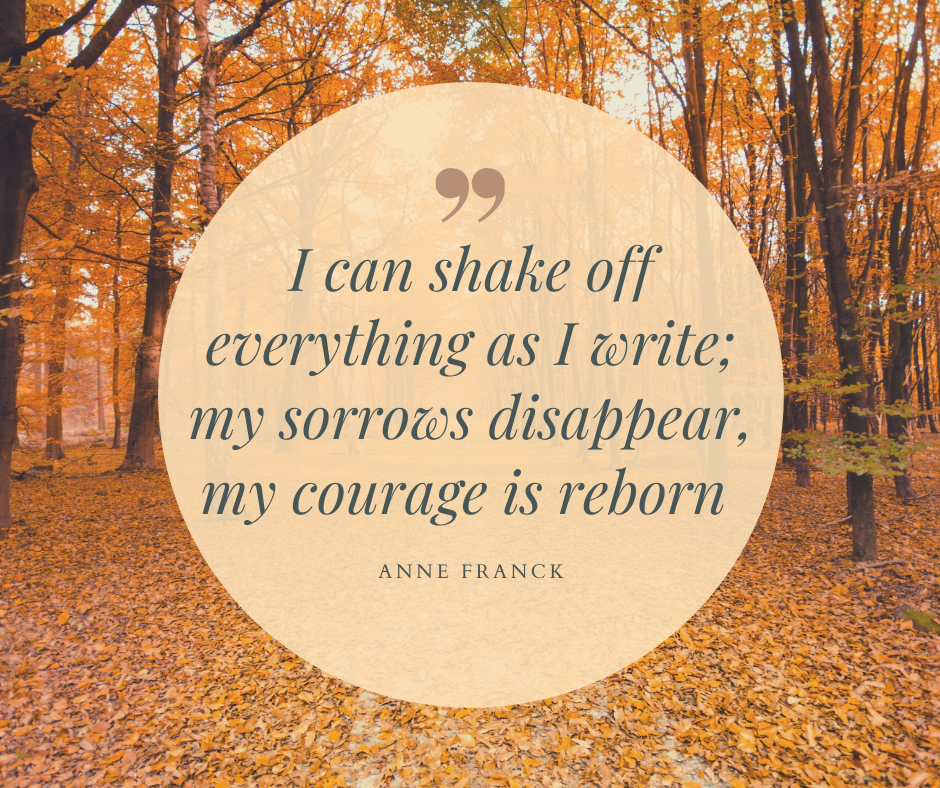Journaling can change your life.
Many successful and happy people have one thing in common: journaling. Have you been able to motivate yourself to do so yet? Journaling is also helping many in their search for themselves. I advise you to start it. Keeping a journal promotes your physical and mental health. It also has a positive effect on your entire personal development.
In what way? In this guest post, Romil will explain that to you in his guide.
Thank you, Romil
For the last four years, journaling has been an integral part of my life, and I can’t remember a day when I missed writing on my journal. I feel the difference in my thought pattern, actions, and the way I structure my day. After studying many outstanding people in their respective fields, I can say why journaling has been in their routine and how journaling can be so powerful for you.
We journal for a variety of reasons. We keep specific diaries for different elements of our lives, such as travel notebooks, dream journals, thankfulness journals, learning, and prayer journals. Many people used to keep personal journals in which they chronicled the day’s happenings and their observations.
Here I am sharing with you 7 ways journaling can help you in your day-to-day life and positively impact your overall well-being and Growth.
“Journaling is like whispering to one’s self and listening at the same time”– Mina Murray.
Measure and Achieve goals
Journaling can take in whatever form you like. Goals are one feature that you can use in your journal in particular. Measure your progress and successes towards the end of the day and record them in your diary, just like you would with a goal or habit tracker. Writing down the path to your goal increases your resolve. And it serves as a reminder to your brain that this is essential to you. Anything that gets in the way, such as procrastination, will be eliminated, and your life will become more organized as you complete tasks.
When you write your goals, the probability of achieving those goals increases. Not only it’s in your mind, but you can also see them that create a sense of urgency, and your mind starts prioritizing things accordingly.
Increased Gratitude every single day
Gratitude is a crucial feeling to have in your daily life; otherwise, you’ll always be worried about what you don’t have. When you write down what you are grateful for in your life, you will find that you have a lot to be grateful for. As a result, there will be fewer things to be concerned about, and your mind will be happier as a result. Even in the most trying circumstances, gratitude will help you see the bright side of life.
A gratitude list trains our minds to see the positive side of things. No matter how challenging the situation is, there is certainly something that we can always be thankful for.

Helps in releasing emotional baggage.
Because journaling is essentially writing letters to oneself, you can write without fear of being judged. Some scars are too terrible to express to others, but writing provides an outlet for you to express your emotions. Being open and honest about what you’ve been through is far more beneficial than avoiding the problem altogether. It’s effective because when we express our emotions, we gain emotional clarity.
Improves your writing skills
Some people use journals to write down their feelings and thoughts, while others use them to create art. There is no one-size-fits-all approach to journaling, but if you’re a budding writer, the pages of your journal can serve as a proving ground. Your life is an excellent place to start if you’re seeking for raw material to write about. Your diary will become a repository for that information, so you’ll have an extensive library of thoughts and ideas to draw from the next time you need inspiration for a writing endeavor.
Helps to remember what you’ve learned
Humans are terrible at remembering things. The majority of what we read and hear we forget. However, when you write down what you’ve learned, you’re much more likely to remember it. Even if you never read what you’ve written again, the act of writing anything down improves memory and brain growth.
When you listen to something, your brain is engaged differently than when you write it down. Listening memory does not distinguish between important and unimportant information. Writing provides spatial boundaries between significant and uninteresting information, allowing your memory to focus on and enshrine the information you want to retain.

Improves your problem-solving skills
When you’re dealing with a challenging problem, taking it out of your head and writing it down enables you to think about it from many perspectives and brainstorm several answers in a more structured manner.
Writing down your challenges makes your sight take information and process the possible solution for it. Doing all these things in your brain, though, you are more likely to miss a step, fail to think through each step, or not devote enough time to all of your options.
Increases Self-Awareness
When you keep a regular journal, you learn what works best for you. You discover what makes you happy, sad, confident, and insecure, as well as what is essential for your general health. Writing down your thoughts and feelings assists you in gaining insight into a problem and how to deal with it. On the other hand, journaling broadens your viewpoint by allowing you to read what you’ve written and then look at it with fresh eyes.
About the Author
Romil Rambhad is a Life Coach, Author, and Speaker. His books, videos, and Courses not only inspire people but also educate them to become their best version.
Link to Courses and Books visit Romil Rambhad Self Mastery Academy
Check out his courses on Skillshare
Get Romil’s Free ebook in your mail immediately > You Are Worth It – A Guide To More Self-Esteem










Good read, nice motivation tips.I can see me doing these. Interested to read more. Thanks.
Hey Veronica, thankyou for the lovely comment. I think writing is more of necessity because it even helps us release our suppressed emotions that we can’t share with anyone and also its a great way of expression!!
Regards,
Romil Rambhad
Thank you for sharing the point of wisdom. It is a great reminder to sit down and take a few moments for ourselves. Journaling is a part of self-care. For those who are not good with words, there is always automatic writing, too.
Well said, absolutely I agree writing is a part of self care and yes it doesn’t matter we are good with words/Grammer or not, the important thing is this is a outlet of our expression/thoughts instead of keeping it inside our mind it’s better to put it out in journal.
Regards,
Romil Rambhad
Writing does have great benefits for sel conscience and self esteem. I do agree ! But of course, it is important to keep writing daily.
Yes, absolutely. Writing daily can be a daunting task
But it’s so powerful in a long run. I have many journals, one of them just to write my plans and ideas/thoughts and I can monitor how my plans changes. It’s s good way to become more aware of our thoughts!!
Regards,
Romil Rambhad
Journaling can definitely help you bring your gratitude to the next level Erika. Excellent points in this post. I do write things out here and there because it helps to move thoughts and feelings from your mind onto paper. Typing helps but the physical act of writing seems to add greater power to the cathartic effect of journaling.
Ryan
Ryan K Biddulph recently posted…Walking through Oman Thinking of the Blogging Success Factor
Hi Ryan,
Yes, writing thoughts and feelings down can help and you do it all the time in your posts. As you say writing it down on paper is more effective.
It seems it helped Romil a lot. I am not into journaling, and use my mind to review my thoughts and emotions while walking. Gratitute comes with it also.
I think for younger people who have a passion and goal it is very helpful. And as Romil also writes it brings self-awareness which is especially needed in out time.
Thank you for your comment
Erika
Yes, Certainly writing is the best way to bring gratitude in our daily life. Even I have a habit of writing here and there but recently did some structuring; created a few journals one for my routine work, one just for writing out new ideas, and one especially for learning. It helps a lot…
Romil Rambhad